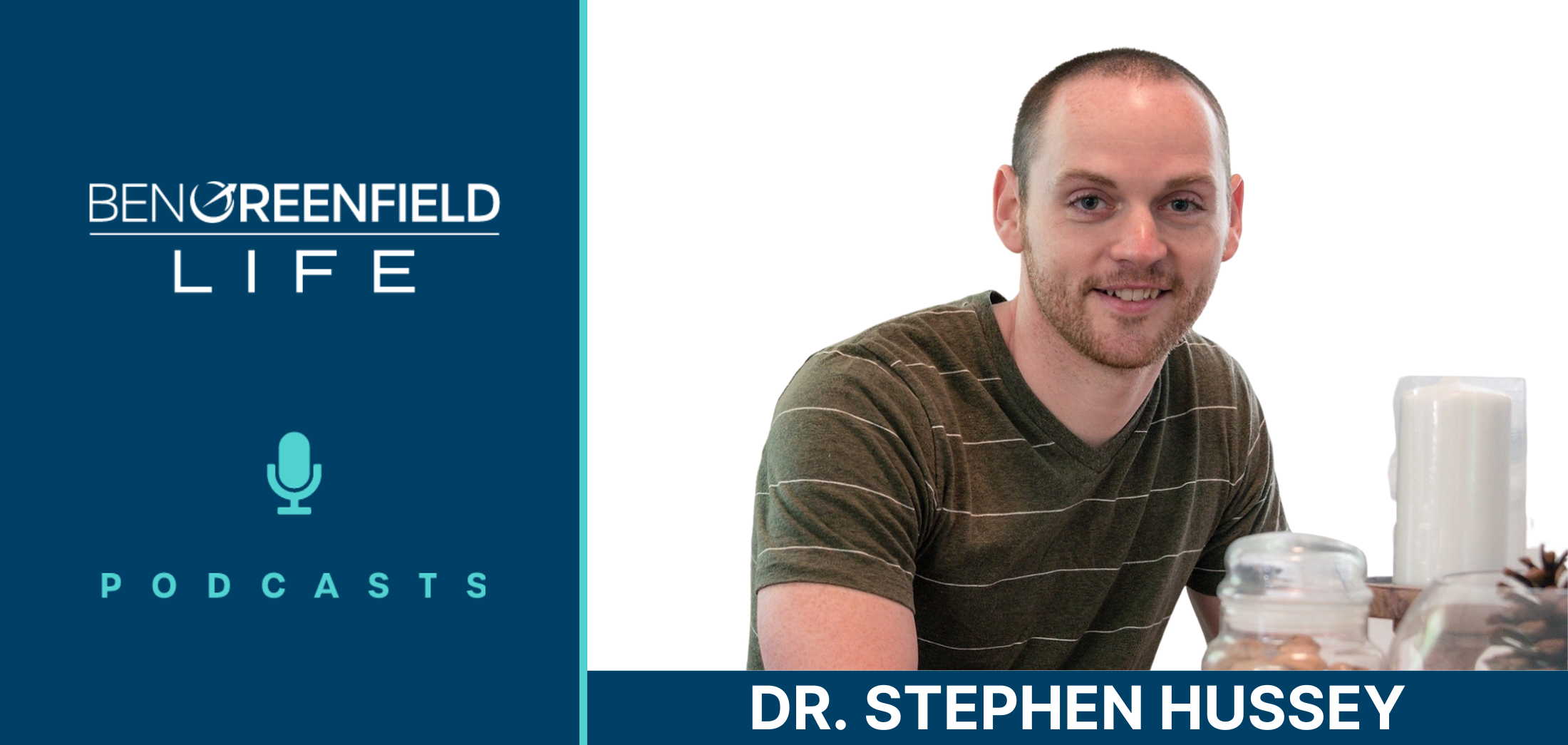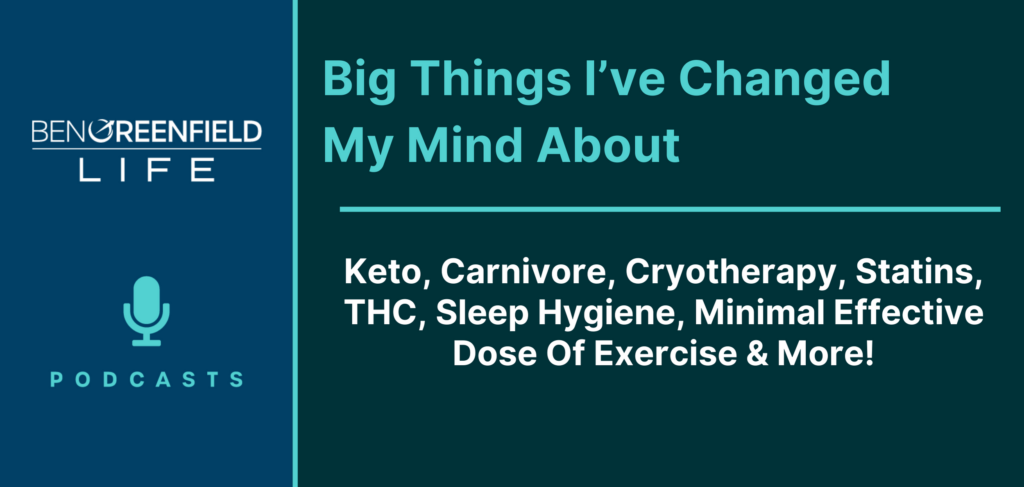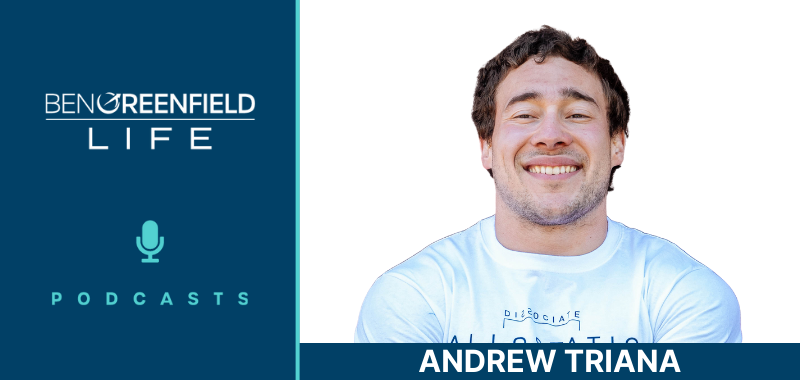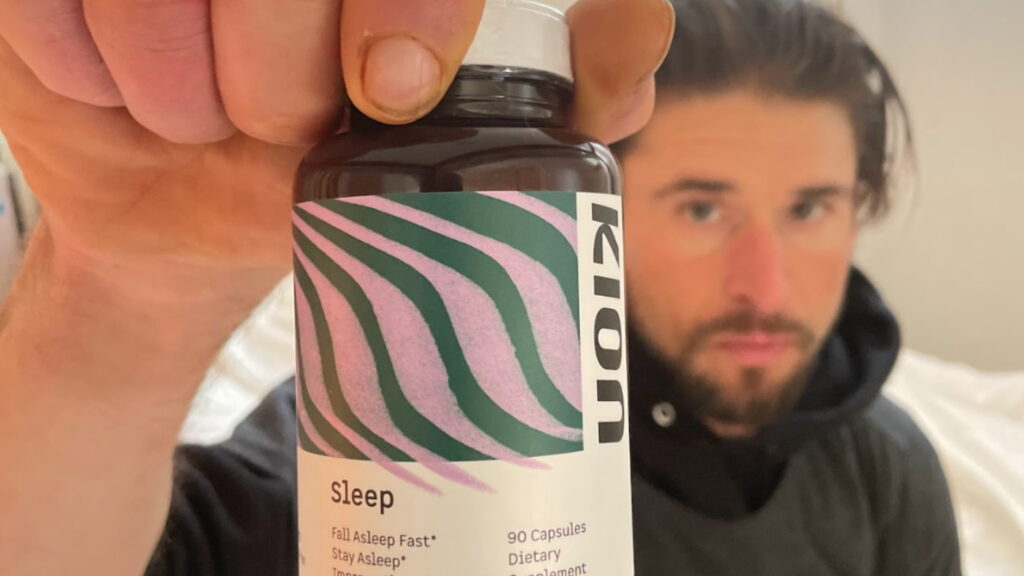December 14, 2023
Welcome to Part 2 of this fascinating show about heart health, all based on the book Understanding the Heart: Uncommon Insights Into Our Most Commonly Diseased Organ by Stephen Hussey. Didn't catch Part 1 of this captivating discussion? Make sure you check it out here.
As mentioned in several podcasts throughout the year, I've recently come across what I believe to be the best book on cardiovascular health that I've ever read.
Before this point, my top book recommendation would have been Dr. Thomas Cowan's Human Heart, Cosmic Heart, ideally paired with a listen to my own big show on all the different ways to test, analyze, and medically quantify your heart health, which you can listen to in the episode titled “The Best Way To Test How Healthy Your Heart Is: Ben Greenfield Undergoes A Complete Advanced Cardiac Evaluation & Reports The Surprising Results!”
Anyway, this latest, groundbreaking book — Understanding the Heart: Surprising Insights Into the Evolutionary Origins of Heart Disease―and Why It Matters — is by the remarkable Dr. Stephen Hussey, MS, DC, a chiropractor, functional medicine practitioner, health coach, and speaker. He attained both his Doctorate of Chiropractic and Master of Science in human nutrition and functional medicine from the University of Western States in Portland, Oregon.
In addition to Understanding the Heart, Dr. Hussey is also the author of another excellent book on health and longevity titled The Health Evolution: Why Understanding Evolution Is the Key to Vibrant Health. Through his unique expertise, he guides clients from around the world back to health using ancestral wisdom and the latest research. In his downtime, Dr. Hussey likes to be outdoors, play sports, read, write, and spend time with his wife and their pets.
During our show — which is a re-release of one of the most popular podcasts on cardiovascular health that I've ever recorded — you'll learn the fascinating history of heart disease, why the naked mole-rat is important in understanding heart health, where water, infrared light, aspirin, ketones, and other little-known heart health “hacks” fit in, and a BIG surprise toward the end of this two-part podcast series.
During this discussion, you'll discover:
-Why the heart gets the cream of the crop when it comes to our fat…07:40
- Since the heart is metabolically active, the body gives it preference for fatty acids and ketones
- Direct signaling pathway from heart to fat cells
- Newly studied and still learning
- The heart can ask the fatty acids to shift into metabolic utilization
- 2019 study: “Alteration of Myocardial GRK2 Produces a Global Metabolic Phenotype”
-What is a lean mass hyper-responder…13:45
- A lean mass hyper-responder (LMHR) is someone who goes on a very low-carb or carnivore diet and biomarkers get really healthy, but their low-density lipoproteins (LDL) and total cholesterol skyrockets
- Reasons
- Prolonged fasting leads to increased LDL
- The process of making ketones when going on a low-carb diet is similar to what the liver does when making cholesterol; by default, the same pathways are used, it just shifts from making ketones to making cholesterol; more cholesterol production
- Since there's more cholesterol, the liver shuts off its cholesterol receptors, leaving more LDL lipoproteins in the blood
- Dave Feldman of Cholesterol Code
- Tip for lowering cholesterol before health insurance screening
- Decrease saturated fat intake, increase carbohydrates
- LMHRs get healthier by increasing triglycerides and LDL, but not so high you're at risk for heart disease
-How statins work and issues with CoQ10…19:02
- BGF podcast with Dr. Barrie Tan, discussing CoQ10 and statins:
- CoQ10 supplement
- Ancestral Supplements Beef Heart capsule
- Type 1 diabetic treatment is usually a statin
- Takes fatty acid, does this 20-step process to make cholesterol
- Statins obstruct the cholesterol-making process by inhibiting 1 enzyme that stops the conversion to 1 molecule, to HMG-CoA
- Dolichol: important for the health of insulin receptors
- Farnesyl pyrophosphate makes dolichol
- 30% increase in insulin resistance for people who take statins
- Glutathione: important for oxidative stress and creating antioxidants (use code BEN to save 5%)
- Statins suppress antioxidants, cause an increase in inflammation
- Supplement to counteract effects of statins with CoQ10 or with Glutathione
- Vitamin K2 is important for placing minerals into bone
- PCSK9 keeps LDL receptors closed so LDL stays in the blood
- Early trials show PCSK9 drugs lead to deficiencies in fat cell vitamins
- Some studies show people with high cholesterol live longer, have lower rates of infection, HD, cancer, and better cognitive ability
- Ben keeps his cholesterol between 200–300, blood glucose low, and inflammation low
-Why aspirin may be a bad idea…27:57
- Aspirin blocks pain by decreasing prostaglandins
- Counterintuitively, it interferes with the healing process
- People who take aspirin don't recover as quickly as people who don't take it
- Aspirin taken long-term can cause gastrointestinal (GI) bleeds and kidney issues
- Physician-recommended daily low-dose aspirin only accounts for buffered aspirin, which has a lot of magnesium in it
- Magnesium thins (decreases the viscosity of) the blood, helps muscles relax and decreases blood pressure
- Magnesium is arguably better to take for heart attack prevention (use code BEN10 to save 10%)
- Podcast with Dr. James DiNicolantonio
- Dr. James DiNicolantonio's article: “Magnesium for the prevention and treatment of cardiovascular disease”
-Ouabain and strophanthus…35:51
- Podcast with Dr. Ram Dandillaya:
- Article on strophanthus:
- Podcast with Dr. Thomas Cowan:
- Looks like blood vessels coming off a white flower
- The body makes a version of this from the adrenal glands
- The kidneys nourish the heart
- Ouabain/strophanthus restores normal parasympathetic signaling to the heart, helps people with angina
- Angina is when the heart is forced to burn more glucose than it wants to and starts building up lactic acid
- Decreased parasympathetic signaling by using ouabain, the heart isn't getting the stress response signals to burn glucose and burns fatty acids instead
- Game changer for the heart
- Can be used proactively, not only for people concerned with cardiovascular disease
- Human Heart, Cosmic Heart by Dr. Cowan
-How chiropractic therapy can improve heart health…40:07
- Chiropractic therapy corrects the balance of the autonomic nervous system (ANS)
- Increases the body's ability to produce more antioxidants
- Suppresses sympathetic signaling and helps the body to be more metabolically flexible
- False reports on chiropractic adjustment causing stroke
- Impossible to get enough force in the artery of the neck to induce a stroke
- The most common signs of stroke are neck pain and headaches
- Joint restriction affects vagal nerve tone and ANS
- Pain signals from the nerve go to the annular fibers around the discs
- Restricted joints and chemical changes are relayed from joints to spinal tissue causing a stimulated sympathetic nervous system
- Discs don't have a blood supply; they rely on motion to push fluid in and out
- If there's no motion, the disc deteriorates, sending constant pain signals to the sympathetic signaling section of the brain
- Irritation/inflammation of sympathetic receptors can induce stroke
- Podcast with Dr. Jay Wiles on HRV:
- Increase in heart rate variability (HRV) or vagal tone in response to chiropractic therapy (use code BEN40 to save 20%)
- Ben's weekly chiropractic session at Valente Chiropractic in Spokane
-Best practices for maintaining heart health…47:09
- Eliminating vegetable oils
- Avoiding processed sugars and grains
- Whole food diet
- Be picky about your water; structured water
- 10–30 second burst training + strength training
- Yoga
- Infrared sauna
- Sunlight
- Barefoot walking
- Balancing the ANS
- Body by Science by Dr. Doug McGuff
- BGF podcasts on holistic dentistry:
- “It’s All In Your Mouth: How Your Teeth Are Impacting Your Immune System, Sleep, Performance, Inflammation & Much More (& What You Can Do About It With Holistic Dentistry) With Dr Dominik Nischwitz.”
- “Is Charcoal Toothpaste OK, 8 Crucial Mouth Beauty & Oral Health Tips, Peptides For Oral Care, The Invisible Dental Flow In Your Mouth & Much More With Nadine Artemis.”
-Why Stephen refers to Western medicine as “two-faced medicine”…49:16
- In January 2021, Stephen had a massive heart attack — 100% blockage of the left anterior descending artery
- Only 12% of people survive if it happens outside the hospital setting
- Not a stenosis or plaque buildup but a spontaneous clot that formed
- The information in his book Understanding the Heart is critical for people to have because of his experience
- Stephen's opinion of what happened to him:
- Type 1 diabetic for over 25 years; half of those years, the condition was not well controlled; more likely to have insulin resistance and imbalanced ANS
- 2020: high stress; uncontrolled stress can cause clotting factors
- The whole point of the book is to draw attention away from cholesterol in heart health and focus more on insulin resistance and the ANS
- Studies show IV magnesium sulfate is just as effective as blood thinners in preventing clots
- Conflict between doctors' recommendations and Stephen's scientific knowledge of heart health
- The recommendations that people get for heart disease are not working
- Hospital recommended what equated to a processed food diet and decreased salt intake
- Ketosis was great for his recovery
- Heart function is back up to 55% already despite refusal to take most medications
- What Stephen used to recover:
- Infrared sauna
- Ouabain
- Animal food nutrients that have been shown to aid in heart recovery and prevent heart remodeling like
- Magnesium (use code BEN10 to save 10%)
- Stress-relieving practices
-And much more…
Click here for the full written transcript of this podcast episode.
Upcoming Events:
- Unlock Longevity: February 24, 2024
Join me in Austin, Texas, on Saturday, February 24, 2024, for the Unlock Longevity event where I'll be presenting on “The 5 Elements in Your Environment That Will Make or Break Your Health.” Check out more by going to bengreenfieldlife.com/unlock-longevity (use code Greenfield10 for $10 off your ticket).
- Keep up on Ben's LIVE appearances by following bengreenfieldfitness.com/calendar!
Resources from this episode:
- Resource Your Health
- Understanding the Heart: Uncommon Insights Into Our Most Commonly Diseased Organ
- Understanding the Heart: Surprising Insights Into the Evolutionary Origins of Heart Disease ― and Why It Matters.
- The Health Evolution: Why Understanding Evolution Is the Key to Vibrant Health
– Podcasts And Articles:
- “Why Your Vitamin E Supplement Could Be Harming You (& The “One Plant Wonder” Alternative That Could Be The Single Most Powerful Molecule If You’re Stranded On A Desert Island), With Dr. Barrie Tan”
- “The Best Way To Test How Healthy Your Heart Is: Ben Greenfield Undergoes A Complete Advanced Cardiac Evaluation & Reports The Surprising Results! With Dr. Thomas Cowan”
- “Why Your Heart Is Not A Pump (& What Most Doctors Don’t Know About The True Cause Of Heart Disease), with Dr. Thomas Cowan.”
- “Getting Ripped With Yoga, Using Isometrics To Build Massive Athleticism, Five Things You Must Do Every Morning & More! With Dean Pohlman.”
- “It’s All In Your Mouth: How Your Teeth Are Impacting Your Immune System, Sleep, Performance, Inflammation & Much More (& What You Can Do About It With Holistic Dentistry) With Dr Dominik Nischwitz.”
- “Is Charcoal Toothpaste OK, 8 Crucial Mouth Beauty & Oral Health Tips, Peptides For Oral Care, The Invisible Dental Flow In Your Mouth & Much More With Nadine Artemis.”
- “The Insulin Of The Heart: A Little-Known Seed Extract That May Be The Future Panacea For Heart Disease.”
- “Sunlight Makes You Skinny & Blue Light Makes You Fat: 11 Ways To Biohack Light To Optimize Your Body & Brain.”
- “The 7 Best Stress-Fighting Weapons That Will Make Your Mind-Body Connection 100% Bulletproof.”
– Books:
- Human Heart, Cosmic Heart by Dr. Thomas Cowan
- The Mineral Fix by Dr. James DiNicolantonio
- Body by Science by Dr. Doug McGuff
– Gear And Supplements:
- Infrared Sauna
- Omega-3 Fatty Acid
- Ketones
- CoQ10
- Beef Heart By Ancestral Supplements
- Glutathione (use code BEN to save 5%)
- Vitamin K2
- Magnesium (use code BEN10 to save 10%)
- L- Carnitine
- L-Carnosine
- Taurine
- Strophanthus/Ouabain
– Other Resources:
- Dave Feldman of Cholesterol Code
- Valente Chiropractic in Spokane
- Lean Mass Hyper-Responder
- Dolichol
- Farnesyl Pyrophosphate
- “Alteration Of Myocardial GRK2 Produces A Global Metabolic Phenotype”
- “Molecular Biology Of PCSK9: Its Role In LDL Metabolism”
- “The Sympathetic Nervous Response In Inflammation”
- “Cholesterol Lowering Drugs”
- “Cholesterol-Lowering Agents: PCSK9 Inhibitors Today And Tomorrow”
- “LDL-C Does Not Cause Cardiovascular Disease: A Comprehensive Review Of The Current Literature”
- “The Mechanism Of Action Of Aspirin”
- “Long-Term Use Of Aspirin And The Risk Of Gastrointestinal Bleeding”
- “Magnesium And Vascular Changes In Hypertension”
- “Rethinking Heart Failure”
- “Magnesium For The Prevention And Treatment Of Cardiovascular Disease”
- “Magnesium In Disease”
Episode sponsors:
Organifi Shilajit Gummies: Harness the ancient power of pure Himalayan Shilajit anytime you want with these convenient and tasty gummies. Get them now for 20% off at organifi.com/Ben.
Essentia: Essentia organic mattresses are the only mattresses to score best on eliminating all sleep-interrupting stimulants. Experience Essentia for yourself and save an additional $100 on your mattress purchase using code BENVIP at myessentia.com/bengreenfield.
JoyMode: Want to spice things up in the bedroom and boost your sexual performance (and do it naturally without nasty prescription drugs)? I have a special offer for the Ben Greenfield audience. Go to usejoymode.com/GREENFIELD or enter GREENFIELD at checkout for 20% off your first order.
Calroy: Head over to calroy.com/ben and save 20% when you bundle a 3-month supply of Arterosil HP (a premier supplement to support the endothelial glycocalyx, the fragile inner lining of the entire vascular system) and Vascanox HP (a breakthrough product providing nitric oxide support for up to 24 hours with a single dose).
ProLon: Their 5-Day Fasting Nutrition Program is scientifically tested and patented to nourish your body while keeping it in a physiological fasted state. Right now, you can save 15% on your order when you go to ProLonLife.com/BEN.














Hi Dr. Hussey,
Thank you for the wonderful knowledge you are sharing with the world to make it a better place. I’m 46 years old and live a BG style life. I have a few questions that may take a while for you to answer, I really appreciate it.
I take 5mg if Cialis for BPH, but it may be beneficial for the heart. I try to limit my medications and like to use natural alternatives as much as possible, but I feel comfortable taking this. What is your opinion on Cialis for heart health?
I had a case of pericarditis 1.5 years ago. Without saying, we all can guess what most likely caused it. Should I worry about another episode of pericarditis in the future?
When I went to the ER for pericarditis, (severe chest pain that radiated to my shoulder) it caused an inaccurate EKG reading and I was initially told I had a heart attack and was transferred to another hospital via helicopter for an emergency cath, ultrasound, and every test a cardio team would give for this situation. The stress of the misdiagnosis was worse for me than the pericarditis, lol. Prior to that I had a calcium score test which was zero and was told that is great for my age. My cardiologist told me “I have a 1% chance of having a heart attack.” But below is my ultimate question/concern:
In addition to this, I have been under IMMENSE stress for 4 straight years. Including PTSD from combat zone and a toxic marriage that is ending in divorce. Retiring from a 20-year military career and starting a new job, moving, along with the fears and stress of the divorce proceedings to come the next few months have me worried about my heart. Fortunately, I do everything else in the top 1% of the pop…strength, yoga, HIIT, diet, supps, sauna, cryo, float tanks, etc. My resting heart is in the low 60’s and BP has been textbook for over a decade. Would you recommend a stress test, or any other test at this time for precaution? Are my chances of having a heart attack greater because of the stress I have and will continue to be under?
Thank you so much!
Greg
Since the correlation between LDL (looking at particle size) is fairly substantial. What difference does it make how you got there? That is ; if I shot my LDLs up by eating a low carb or ketonic diet or any other way of eating- how would my arteries refuse to block because — these large LDL particles are from low carb, and not from eating white flour and sugar. just seems like how you get to high LDL probably doesn’t matter– other than you might know how to reduce it if you know how you got there. I must be missing something?
Hi Stephen…..on the hunt for a copy of ur book referenced here “Understanding the Heart” however Amazon says no longer available. Am I able to purchase a copy directly from you?
Thanks for the great info!
Ray
What is the best form of magnesium for the heart (specifically for someone in their 60’s)? Thank you!!
I don’t know that there is a “best form for the heart”, but I take Magnesium L-threonate.
Does your book speak more on what to do? I know you and Ben spoke on some of the things to do;sauna, magnesium etc. but does the book go into more detail? Also was you doing these things before the heart attack?
Yes, it gives plenty of strategies on what to do and how to find out what may be best for you. I was doing some of the things I talk about but unfortunately had gotten away from many others and due to the stress I was under was also having trouble with blood sugars in the months leading up to the heart attack.
LDL particle size matter or no?
I don’t think it is as relevant as some people think, but it all depends on the state of someone’s health and how healthy their 4th phase water in the arteries are. Just my opinion.
All showing Aspirin Does not in fact cause GI bleeds and shows actual protection
https://www.ncbi.nlm.nih.gov/pmc/articles/PMC5113… https://academic.oup.com/annonc/article/26/2/441/… https://www.ncbi.nlm.nih.gov/pubmed/25732717
https://www.ncbi.nlm.nih.gov/m/pubmed/11595418/
“All NSAIDs tested, except ASA [aspirin], caused hemorrhagic lesions in the small intestine…ASA did not provoke any damage…and prevented the occurrence of intestinal lesions induced by indomethacin, in a dose-related manner.” (Takeuchi K, et al., 2001)
Sure, but that first study you posted also say this: “The substantive risk for prophylactic aspirin is therefore cerebral haemorrhage which can be fatal or severely disabling, with an estimated risk of one death and one disabling stroke for every 1,000 people taking aspirin for ten years”.
Plus, there is plenty of evidence that long term aspirin can contribute to kidney failure. My main point in the book was to illustrate that aspirin has not been shown to be beneficial for primary prevention of MI and that their are possible downsides to long term use. I want to encourage people to make lifestyle changes not just take a pill.
my point is we tend to find research that fits our beliefs, however there is research that directly supports aspirin use in kidney disease, heart disease and diabetes. So now we have conflicting studies! so now what?
(the bleeding issue aspirin presents is resolved by taking K2)
https://pubmed.ncbi.nlm.nih.gov/11533494/
https://www.jci.org/articles/view/11559
https://www.ncbi.nlm.nih.gov/pmc/articles/PMC150979/
https://www.sciencedirect.com/science/article/abs/pii/S027263869690565X
https://www.jacc.org/doi/full/10.1016/j.jacc.2010.02.068
Conclusions:Aspirin therapy produces greater absolute reduction in major cardiovascular events and mortality in hypertensive patients with CKD than with normal kidney function. An increased risk of major bleeding appears to be outweighed by the substantial benefits.
https://clinicaltrials.gov/ct2/show/NCT02895113
As diabetes is perhaps the most common chronic disease in the world and many diabetes sufferers have kidney disease, which is considered irreversible. However, as this clinical trial states (and as Peat said as well), the kidney damage seems to be due to inflammation stemming from PUFA metabolism through the COX enzyme and thus COX inhibitors like aspirin may stop the progression of kidney disease. The trial just started so it is too early to say if it would work but the theoretical background is solid and backs up what Peat has been saying.
I see all your points, and I have seen many people reverse kidney disease through lifestyle change and have spoken with many practitioners who see they see it happen all the time in their practice. Yes, diabetes is a super common disease, and in the vast majority of cases it is totally reversible. Yes, PUFA’s are terrible things, but why would I take aspirin to cover up the effects of PUFA’s when I could just stop eating PUFA’s? The body is amazing and stopping the insults (diabetes, PUFA’s) will allow it to recover in many cases.
I am one who wants to promote lifestyle change because that is how we are going to change the system, improve healthcare, and move away from the pharmaceutical approach to “health”. I am not saying that no one should ever take aspirin, but it is not the recommendation I would emphasize even if studies have shown it could be helpful. There is risk to any pharmaceutical and the effects someone would see with lifestyle change will be so much more beneficial than influencing any one biochemical pathway with a drug.
This whole discussion is not about lifestyle!
Your preaching to the choir about lifestyle change. I’m simply saying Aspirin is not bad and if someone chooses to take it short term, their is plenty of research, evidence, clinical trials that support this.
You did not show both sides of the story with aspirin. You simply showed the bad studies and made a recommendation off that.
Hello Ben,
I took the “Longevity Blueprint” Program 2 years back and didn’t finish it because I was rushed to the hospital for angioplasty procedure due to arteriosclerosis and got a stent to boot. I’m now 64, and have 2 more arteries with 50% blockage. Taking Statins like Dr. Stephen. I wanted to continue that Longevity Program but because of what happened to me do you think it will be wise to just follow what you’ve eluded to do Doug McGuff exercise protocols.
Hi Eric,
Just to clarify, I am not, and have never, taken a statin. The only thing I have taken is the blood thinner due to the stent.
Time to re think aspirin!!
https://raypeat.com/articles/aging/aspirin-brain-…
That’s an interesting article. I was aware of some of that info, but definitely not all of it. However, I didn’t see any mention or explanation of the increased kidney damage aspect of long term aspirin, which is a concern for me as a type 1 with already increased risk. Overall though, I would much rather control all the things he says aspirin can help with in other ways besides taking aspirin, just my preference.